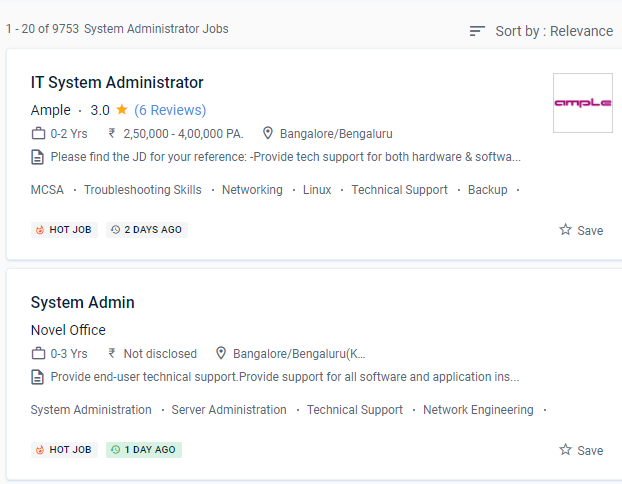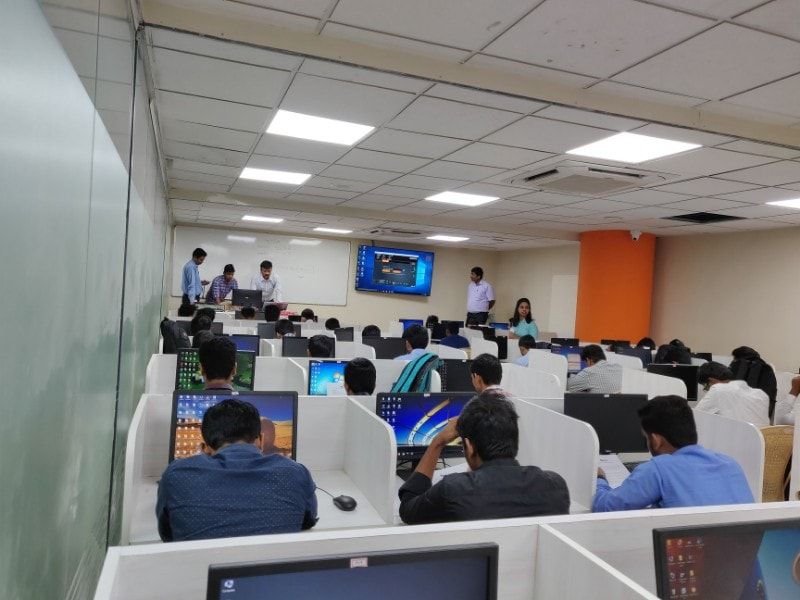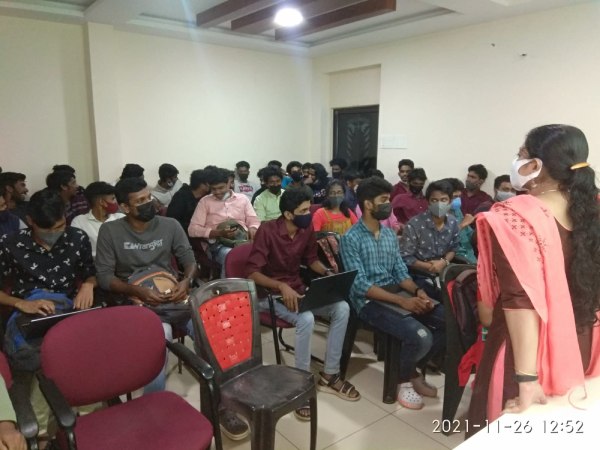System Administration Training by Experts
Our Training Process

System Administration - Syllabus, Fees & Duration
MODULE 1
- System administration introduction, policies, overview, UNIX history and basis
MODULE 2
- File systems and disks
MODULE 3
- Software installation concepts
MODULE 4
- Multi users basics, politics, policies and ethics
MODULE 5
- Automating administrative tasks
MODULE 6
- Networking
MODULE 7
- Backup and disaster recovery
MODULE 8
- DNS
MODULE 9
- SMTP, HTTP
MODULE 10
- Configuration management
MODULE 11
- Distributed computing
MODULE 12
- SNMP, monitoring
MODULE 13
- System security
This syllabus is not final and can be customized as per needs/updates





 System administration roles are broad and often vary based on the type of computer system being managed, however, the majority of them have some fundamental functions that can be accomplished in a variety of ways. These experts may go on to become technology and IT managers in the future.
They are in charge of producing IT policy recommendations for their organization.
For secure, high-speed Internet access, they connect routers, modems, and firewalls. Computer scientists research to develop new IT approaches that are both effective and efficient. Students who pursue a diploma in this field have a fantastic opportunity to expand their expertise.
They install computers, laptops, intranets, servers, cybersecurity software, and other technology.
They set up the network card (NIC) so that data can be sent and received appropriately.
All of the important components of the corporate computing infrastructure are managed by system administrators.
.
System administration roles are broad and often vary based on the type of computer system being managed, however, the majority of them have some fundamental functions that can be accomplished in a variety of ways. These experts may go on to become technology and IT managers in the future.
They are in charge of producing IT policy recommendations for their organization.
For secure, high-speed Internet access, they connect routers, modems, and firewalls. Computer scientists research to develop new IT approaches that are both effective and efficient. Students who pursue a diploma in this field have a fantastic opportunity to expand their expertise.
They install computers, laptops, intranets, servers, cybersecurity software, and other technology.
They set up the network card (NIC) so that data can be sent and received appropriately.
All of the important components of the corporate computing infrastructure are managed by system administrators.
.



















































































